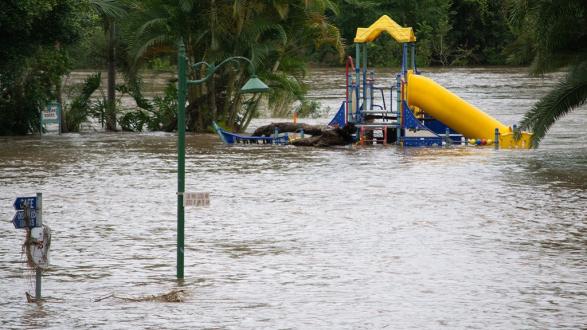In:
Global Beat is your weekly stop for news from around the world. Join us every Friday morning for important stories you should know about.
This week, carbon emissions from human activities have driven significant changes to the climate in Australia; the United States abstains from a UN resolution condemning the embargo against Cuba for the first time; Gambia becomes the third country to leave the International Criminal Court; and more.
____________________
Americas
For the first time, the United States and Israel abstained from an annual UN resolution vote condemning the U.S. embargo on Cuba, though only the Republican-led U.S. Congress can annul the embargo. There were 191 nations in favor of the resolution, none opposed, and two abstentions. This vote signals the Obama administration’s resolve to normalize relations with Cuba, a process that began in 2013 with secret talks between the two nations. The countries reopened their embassies in July 2016, though the process faces opposition from critics who cite Cuba’s human rights violations.
Also check out:
- United Nations plans to pay victims of cholera outbreak it caused in Haiti – Somini Sengupta and Jonathan Katz, The New York Times
Central & South Asia
Saudi Arabia and Kazakhstan have signed a deal to cooperate on peaceful nuclear energy use. The pact comes as part of a larger deal between the countries that include agreements on agriculture, water, and extradition of wanted persons. Kazakhstan, a leading producer of uranium, is looking to grow its small nuclear power program, while Saudi Arabia has begun developing its program and plans rapid expansion in the next 20 years.
Also check out:
- Woman from famous ‘Afghan girl’ photo is arrested in Pakistan – Bill Chappell, NPR
China & East Asia
China held all-day military exercises in the South China Sea on Thursday. The drills come a week after a U.S. warship sailing near the Paracel Islands drew a harsh rebuke from the Chinese government, which accused the United States of "intentionally stirring tensions." The Paracels are claimed by both Vietnam and Taiwan, but are controlled by China. China regularly holds military drills in the surrounding waters, including a joint drill with Russia last month.
Also check out:
- Did North Korea just test missiles capable of hitting the United States? Maybe. – Anna Fifield, Washington Post
Europe & Russia
Russia withdrew a request to refuel ships from its Syria-bound flotilla in Spanish territory. The request stoked tension within the NATO alliance, members of which had called on Spain to refuse the request. NATO has repeatedly condemned Russian military activity in Syria, and NATO Secretary General Jens Stoltenberg expressed concern that the flotilla could be used for further bombardment of Aleppo. NATO has reinforced its defenses in Eastern Europe over the past few months, with plans to send troops to Poland and the Baltic states.
Also check out:
Middle East & North Africa
Two American brothers were arrested in Tunisia on suspicion of terrorist activities. The arrest came after police raided their house and found materials on jihad and documents praising ISIL. Plans to blow up several institutions were also reportedly found. The brothers had recently converted to Islam, and one had married a local woman, who was also arrested.
Also check out:
Southeast Asia & Oceania
Carbon emissions from human activities have driven significant changes to the climate in Australia, according to a new report. Australia’s surface air temperature and its surrounding oceans have warmed by about 1 °C since 1910, increasing the frequency of extreme heat and lengthening the fire season. Rainfall during growing season has dropped almost 20 percent in some areas, and some cities, such as Perth, are increasingly relying on desalination plants for water.
Also check out:
- Philippine President Rodrigo Duterte now wants U.S. troops out ‘in two years’ – Simon Denyer, Washington Post
Sub-Saharan Africa
Gambia is now the third African country after Burundi and South Africa to declare its withdrawal from the International Criminal Court. Gambia’s Information Minister Sherriff Bojang stated that the court is an "International Caucasian Court" with an "imperialist agenda in Africa." Since the court’s inception in 1998, every person tried has been African. African Union Commission Chairperson Nkosazana Dlamini Zuma said that it is the decision of each country whether to join or withdraw from the ICC, and that the AU has its own mechanisms for trying leaders.
Also check out:
- Kenya spares the lives of everyone on its death row – Jeffrey Gettleman, The New York Times




